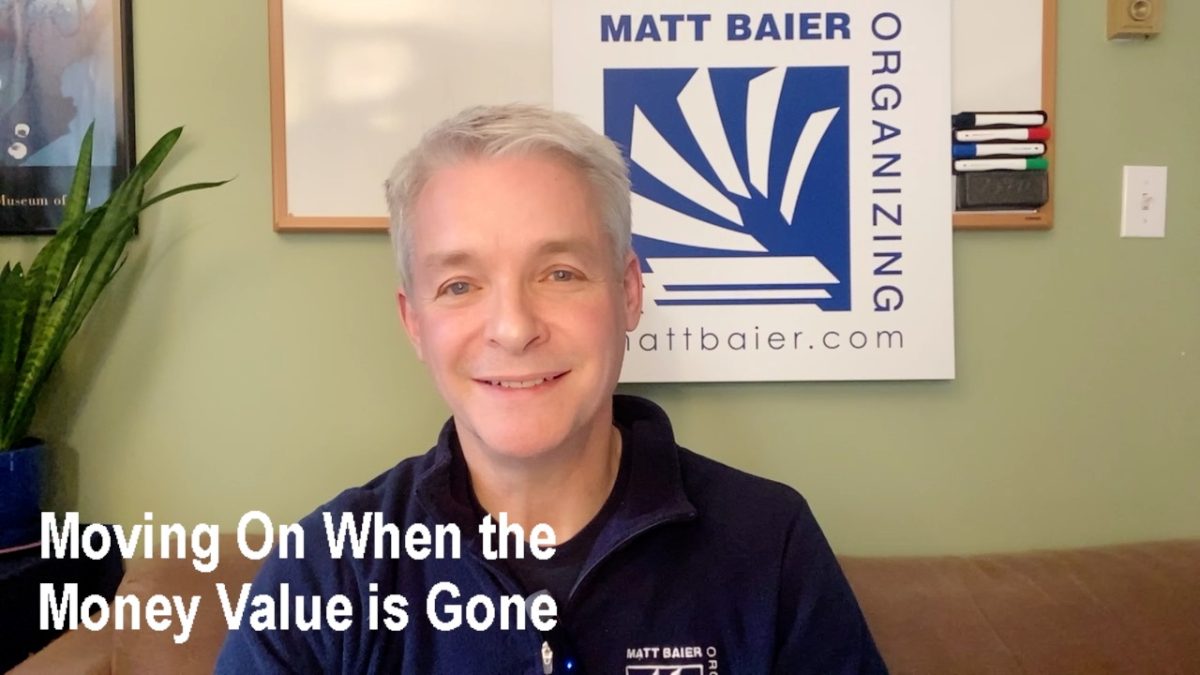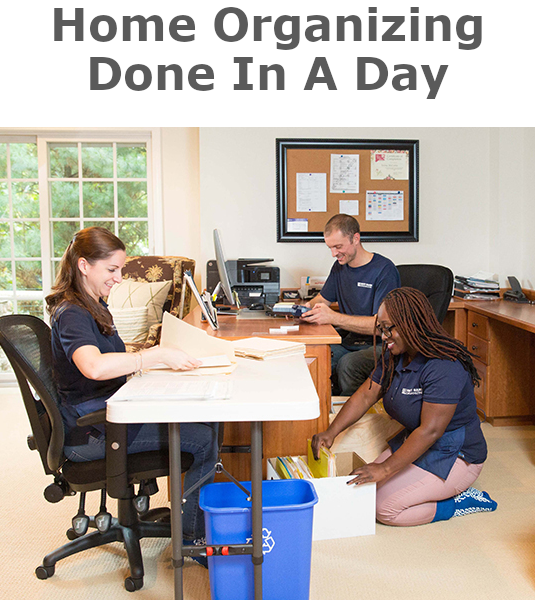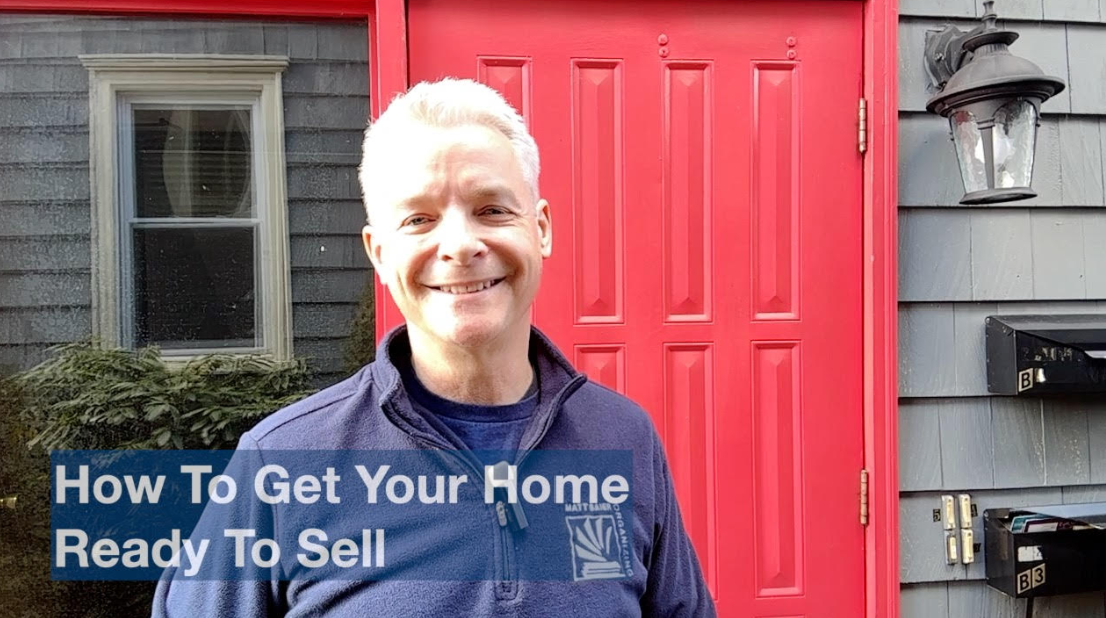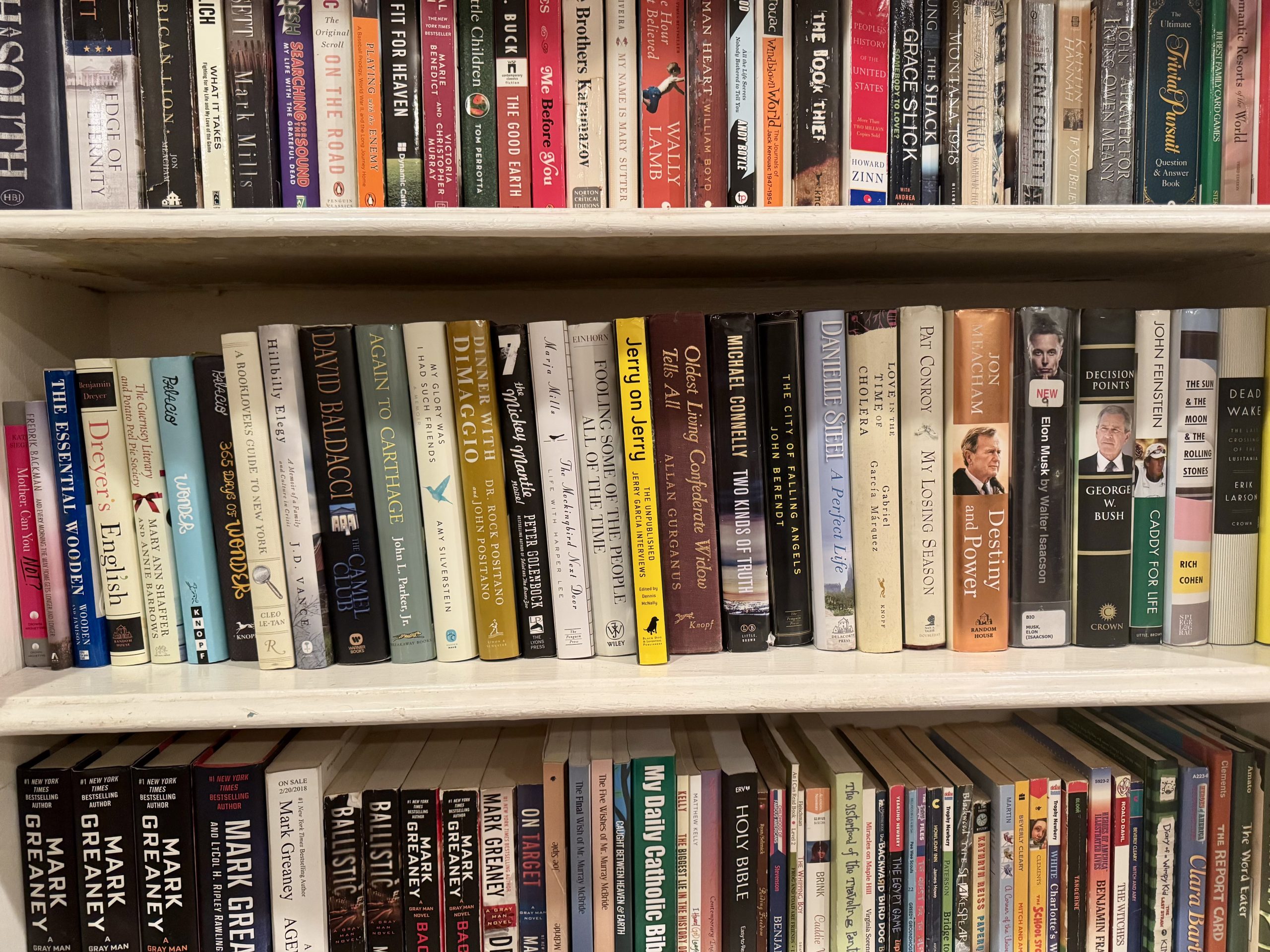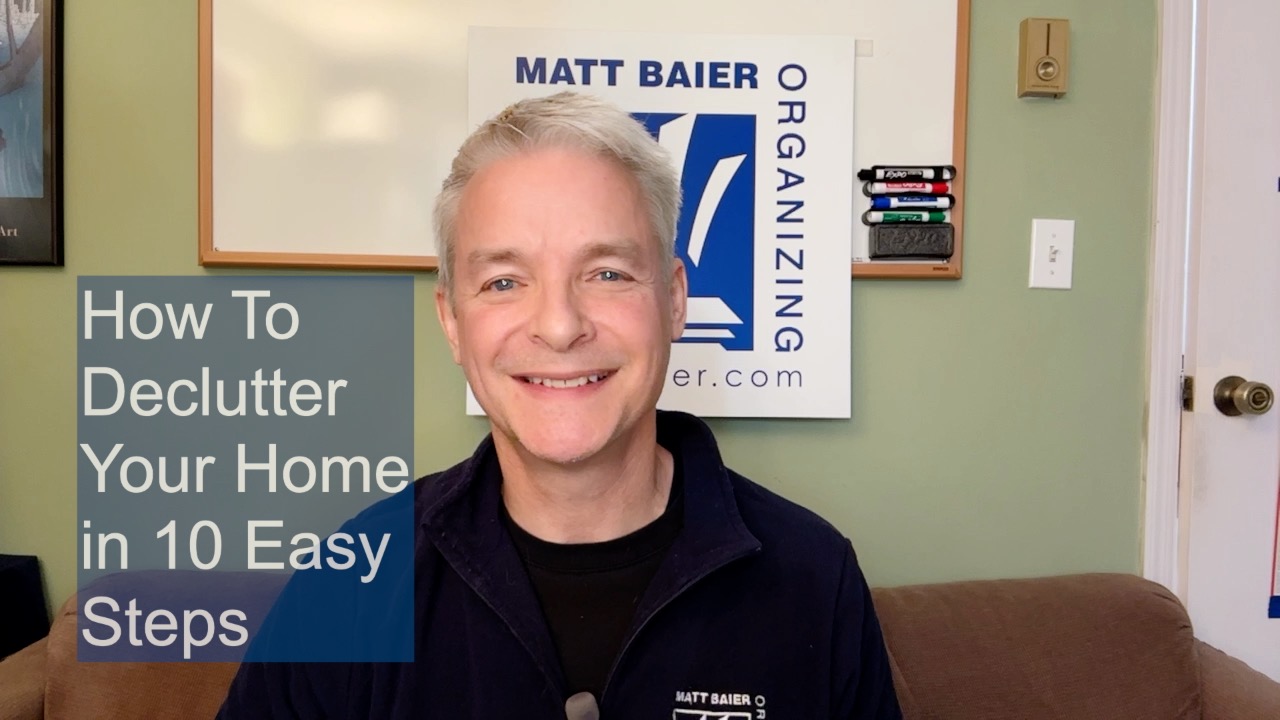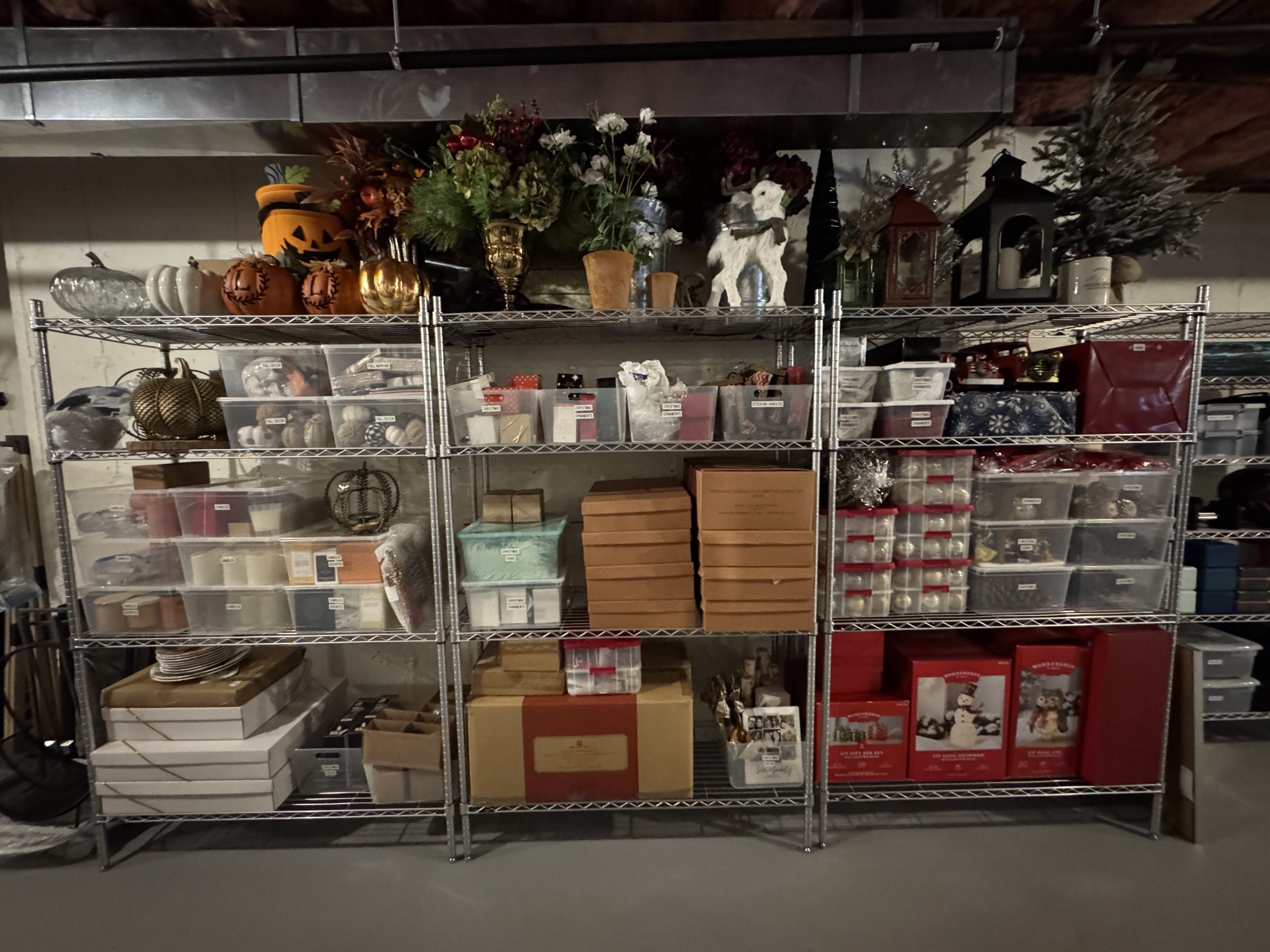One of the things we hear a lot from clients when decluttering is, “I’d like to try and get some money for that.” For many items we can direct clients to resources like an auction house, estate sale, or Facebook Marketplace. But for some items, unfortunately, no one’s buying. The market just isn’t there. I see this a lot. It’s a bitter pill to swallow. So, I’d like to share some thoughts that should make you feel better about your choices.
1.Don’t Second Guess Your Decision
If you have decided that you no longer need an item, avoid trying to justify keeping it just because you can’t sell it. At one time that item was a smart purchase, but now it has outlived its value in your life. It doesn’t owe you anything. The asset has become a liability. This evolution in value is completely natural and you have done nothing wrong by acknowledging it.
2. Match A Need To An Item (not the other way around)
One last ditch effort to justify keeping an unneeded piece of furniture often involves imagining a way to repurpose it in another part of the house. A great rule of thumb when getting organized is to always match a need to an item. Don’t match an item to a need.
For example, maybe you have an antique dresser that never worked for office supplies. So, you agree to move it out of your home office. Maybe you could use it in the basement to store food in. The problem is, the drawers are sticky, and you can’t see what you have inside. So, you start making multiple purchases as a result. The need was visible, accessible food storage. The solution failed because the object was considered first.
3. Size Matters
When hoping to sell, bigger is not better. I’m a big fan of Gary Vaynerchuk, who among much greater achievements, makes a lot of money from selling items he finds at garage sales on eBay. One thing he emphasizes is that education about the market is essential to selling success. 100% right. One thing I have not heard him say is to avoid large pieces of furniture, but his actions speak louder than words. (I don’t see him loading up his trunk with furniture on YouTube.)
Yes, there is a market for collectible salt-and-pepper shakers. No, there’s not a market for 7-foot brown armoires and king-sized beds. Your best bet for selling large furniture is to combine it in an auction or estate sale along with a lot of smaller, more profitable items. That’s the only way sellers can justify the storage space for those large items. If that doesn’t work, maybe Habitat For Humanity or Salvation Army will take furniture for donation, but it has to be in sellable condition. Otherwise, be prepared to pay to have furniture donated or discarded.
4. Recognize The Work
If a seller has “insulted” you by saying that he’ll be lucky if he can get 10% of what you paid for an entertainment unit, you may resolve to try selling it yourself. Please understand the work that is involved. First, you need to research the value of the item in the market. See who’s buying and where and for how much. You may need to clear your space so that you can get a good photo. You need to take measurements and provide complete specifications.
When someone does finally contact you, you have to deal with them trying to talk you down. Which could be less than the figure the seller “insulted” you with. Then you have to settle on a mutually beneficial time for pick up and ensure transportation and labor is covered. Then there’s a possibility that you get the item outside for pick-up and the buyer never shows up. You have no recourse for this with a free service like Facebook Marketplace.
5. Sentimental Allowance
There is nothing wrong with saying that you want to keep something for sentimental reasons. The problem comes when the memories from the past get in the way of your enjoyment in the present. By all means, keep items to honor the past, but store them more remotely and try to keep them small. I have many fond memories of my mother in her favorite easy chair. However, I never found the chair comfortable. So, I am happy to settle for a nice photo of Mom in the chair on my wall. Keeping the chair itself is not necessary for me to honor Mom.
6. Embrace Space
OK, so 1 through 5 were more about managing reservations, but this one is truly about how to feel better. Anytime you organize a space, it is important to first create a vision of what you want to see in it. That way, the decluttering process becomes less about what you are giving up and more about what you are gaining. One of the things you are gaining is invisible but may be the most valuable: open space. Sometimes it is valuable because you can fill it with an unmet need. Other times it is valuable for allowing accessibility. Still other times, the value is in providing some much-needed breathing room.
When you do finally resolve to get rid of an item that you no longer need, remember this. Most likely there is greater value in the space left behind than in the item itself.
What do you find to be the hardest challenge about letting valuable items go? I’d love to hear your thoughts or questions in the box below!
Please Share With Your Community

